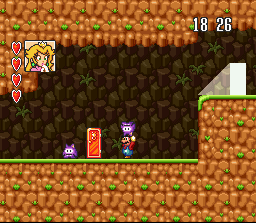Earlier this week, Google announced Stadia, a streaming game service where you can play games by streaming them from Google’s servers across the internet. It was a bold move from the tech giant, given the competitive nature of today’s video game industry, but also one that could theoretically pay off should Google replace Sony, Microsoft, Nintendo or Valve as a major player in the market.

The controller for the Stadia service doesn’t have the best design either
Here’s the thing though:
Do we really want this situation? Do we really feel like Google’s latest project should succeed?
Honestly, I’d say no. In fact, I’ll go further and say that video game streaming (or ‘games as a service’) is one of the worst things that could ever happen to the industry. So much so in fact that I believe most gamers would despise a world where its caught on, and where they should desperately be fighting to stop this happening at all costs.
And that’s because streaming video games/playing video games through an online only service like this has numerous downsides. Downsides so bad in fact that they’d potentially ruin gaming for millions of people.
Starting with the obvious one. With any sort of online only streamed games service, you only have access to ‘your’ library when the device is online. That’s not a big deal in some places (like Silicon Valley, or various parts of Eastern Asia), but for many others it’s a deal breaker there and then, since internet connections aren’t fast or stable enough to make it practical.
Admittedly, the issues can be lessened somewhat here. You can download a bit more content that needed at any one time, so the game continues for a bit while the connection is out. You can render stuff offline and sync it to the server when possible in the future, to help prevent input lag and downtime. Solutions do partially exist for these issues.
But they’ll never be perfect. At the end of the day, there will always be latency issues with games streamed from a remote server/network. If your connection keeps cutting out, it won’t work well.
And if your internet just goes down altogether, well you’re gonna be fubar if it’s any longer than a few minutes regardless. That’s just how such tech works.
That’s not good for people in many places, and makes gaming far more exclusionary and area specific than it ever was before. Is that something you really want? A world where the latest games can literally only be run well in certain countries and cities due to poor network conditions? Seems like you’ve created a situation where the prices for games have unintentionally skyrocketed beyond belief.
Yet that’s only the tip of the iceberg here. Remember, it’s not just tech that’s an issue here, it’s what companies with said technology can now do because of it.
Most notably, decide exactly who they want to be allowed to play their own games at any point in time.
That should scare the hell out of you right there. Think about it. You all know how badly social media controversies can screw your life up, right?
Yeah, me too. I’ve seen people lose their jobs, get endless harassed by phone and email, have their websites and domain services suspended, see themselves unable to take payments on PayPal or through other payment processors… almost anything seems to get snatched away from you if people complain about it enough on the internet.
It’s common (and terrible) enough that it’s created a world where controversy is basically a death wish. Where freedom of speech is all but extinct in many areas, since anyone with enough time on their hands can sink anyone else’s life without a trace.
Now imagine that for video games. Imagine being in a situation where ‘because’ you were mean on Twitter, your entire video game library goes poof into thin air. Where because the mob turned on you, your hundreds of hours put into Pokemon or Super Smash Bros or Fortnite or whatever else go straight down the drain with no way to get them back.
That’s horrible. But it’s a potential reality in a world where ‘do something, anything’ seems to be the motto of every company in existence whenever a controversy starts brewing. Games really would become a political battleground in the most literal sense possible.
Still, it’s not like controversies are the only game losing issue these services bring up. Nope, they’re nightmares for video game preservation in general too.
Because with a service like this, access to the games depends on the whim of the service’s creators. Creators which (especially in the case of Google) love to shut down ‘underperforming’ services at the drop of a hat.
When that happens, well anything only usable via the service is gone with it. And given you have no access to the actual files, that means preservation is out the window. Now every game is a ticking time bomb with an expiry date, and only the unexpected generosity of the game’s publishers and service owners can keep it going beyond that.
And we know this, because it’s already happened before. That’s because back in the SNES days, Nintendo released an add on called the Satellaview, which could play special video games that were streamed piece by piece in the form of live broadcasts (courtesy of Satellite radio company St.GIGA). These were like time limited deals, where at say, 1pm today you’d have access to one level, at 2pm access to another, etc, and where the service would provide live music and voice acting to liven up the games in the process.

Problem is, that stuff wasn’t stored forever. Once the event had passed, it was gone with no way to get it back (at least till the event ran again in future).
And given the Satellaview has now been discontinued for decades, that means those events aren’t coming around again any time soon (or ever). So now large portions of games on the service are gone forever. The music and narration? Gone. Those weren’t even downloaded in any form.

What is Peach saying? Good luck finding out, the voice clips are long gone
Any levels people didn’t think to ‘save’? Again, gone. Including large parts of the Super Mario Bros 1 remake released there, whose beautiful looking world maps can now only be enjoyed through these low quality photos:



Hell, even whole games are gone forever because of it. It’s a terrible situation that many preservationists have written about already, and it’s doomed many good games to obscurity.
Which is exactly what services like Stadia could do to all of gaming if this game streaming idea catches on. Just like with the Satellaview’s library, they could cause every new game in existence to get lost to time. We could be stuck in a situation where the next Super Mario Odyssey, Super Smash Bros or Zelda Breath of the Wild is simply gone forever five years later, never to be seen or played again.
Do we want that? I know I sure don’t.
And I don’t want a world where mods are non-existent either. Cause those too are impossible in a world where video game streaming services are taken over.
Think about it. How can you mod a game you have no access to?
A game whose files don’t even exist on your hard drive?
You can’t. You only play as the developers want, and that’s it. No options, no skin mods, no ROM hacks, no nothing.
You’re no more than a passive consumer forced to ‘act by the rules’ at all times.
Which in turn destroys a lot of player creativity there and then. Again, you know the drill here. You know how mods have affected Doom and Half Life and Skyrim and GTA. You know how Valve have managed to get entirely new franchises from mods of their previous games, like Counter Strike and Team Fortress.
Streaming services remove the possibility for that to ever happen again. They take a perfectly good scene which has taught numerous people how to program, and remove it altogether. And for what? Selling a bunch of lootboxes and DLC for some greedy exec to get a fifteenth yacht?
Yeah, no thanks.
Still, we know what you’re gonna say. Don’t console games already make it hard to mod them?
Ah, good point. Yeah, in theory they do.
In theory, console games really do make mods difficult to use, and take a lot of control away from the user. That’s one reason they’ve always drawn so much fire from PC gamers.
Thing is though, they never really succeed at that goal. Whether it’s through third party accessories like the Game Genie and Action Replay, homebrew exploits allowing mods to be run on consoles or ROM hacks based on the files as exported to PC, mods for console games are thriving right now.
Which can be easily seen with the thousands of mods the Mario series gets. For instance, Super Mario Odyssey isn’t exactly a PC game, but that’s got a whole modding scene behind it now:

Super Mario 64 has all kinds of neat mods, including a full blown online multiplayer mode:



And Super Mario World… well that’s got its own bloody community, with hacks being made non-stop for decades. Such as these little numbers:


Point is, mods do exist for console games almost as much as they do for PC ones, and in both cases, their existence makes the world a much better place.
Yet again, they’re another thing these services would spell the end of.
So yeah, that’s social media controversies, video game preservation and mods covered, all of which are important things likely lost by a move to services like Google Stadia.
But they’re not the only ways. No, at its core, these services are a bad idea because you lose ownership of your own games.
Cause that’s what all this is really about. At its core, these streaming services turn games from something you buy into something you eternally rent, with the downsides that brings.
And there are a lot of downsides there. Even ignoring the above and latency/connection issues, you additionally get:
- The pressure of having to constantly renew your subscription to keep playing the games you love
- The complete inability to resell or trade in your games, or even likely loan them to friends and family
- A system which is generally more unstable than installing games locally, as shown by recent ‘down for maintenance/you’re in a queue’ messages for people trying to play games from Epic’s own store.
- Astronomical requirements for bandwidth (one stat I saw online was 20GB an hour for using Stadia)
Plus the fact that hey, this may not actually save all that much money. Oh sure, the odd super hardcore gamer may benefit on a pure cost/savings level, and if you’re playing hundreds of games a year, more power to you.
But many people aren’t. For those people, it’s not hard to wait a bit longer for games to go down in sale (or even get offered for free in many cases) and know they now own them forever. Not until they stop paying (which will add up over time) or till the servers go down. Forever.
So before you look at Google Stadia or think about these ‘streaming’ services, ask yourself the following question:
Who really benefits here? In which ways do streamed video games/games as a service actually offer a better deal than buying them outright?
And are you really happy with the direction they may take the industry if they succeed?
Because I’m not. Nor are many other people here at Gaming Reinvented. Because while the pricing may be convenient at times, from every other angle these services seem like an anti-consumer power grab designed to take away many of our rights and burden the gaming world in a mire of technical issues and political controversies.
They’re a bad idea all round, and they’re a future we don’t want for gaming. Let’s hope Stadia fails like previous attempts here did.